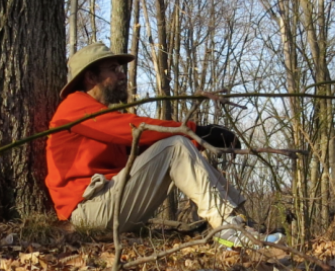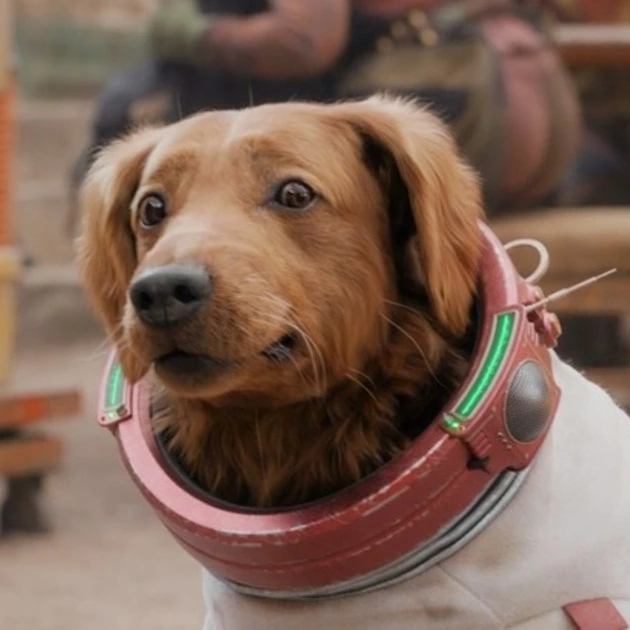a perennial favorite topic of debate. sound off in the replies.
I’ve mentioned this before here, but my stance is 20 years flat for a work owned by a corporation, and life for works owned by an individual.
Yeah that seems pretty reasonable to me. Was pissed off when the government here sneakily extended copyright length from 50 to 70 years as part of a trade deal with the UK a year or two ago - even 50 years was far too long IMO!
That’s interesting. Where is here for you? Was that term something pushed by the UK?
Not sure if this person is in the same place but Aotearoa NZ recently extended copyright from 50 to 70 years after death due to a UK trade deal, so I wouldn’t be surprised if the UK have pushed it. We’ve recently fast-tracked the change due to an EU trade deal, though, so it’s not the UK alone.
Yep that’s the one, turns out I misremembered the exact lengths, cheers for letting me know!
This sounds perfect
Then you just have companies transfer ownership of their IPs to some notable figure in the company and transfers away from them when they die/leave. leading to indefinite ownership of copyrights by a company. This is even longer copyright than what we have today.
So just make it nontransferable.
why lifetime copyright ownership for individuals?
Mostly, I felt it was important to discourage IP ownership by corps by making the individual term much longer. I’m open to making it shorter, but still considerably longer than that of corporations. An individual isn’t going to be able to harm infringers the way that, say, Nintendo can, and does.
As a published author, I’m glad copyright existed. Without it, none of my publishers would have been in business and I would have had to find some other income source. But I think the default should be “public domain” rather than “copyright”, and I’m skeptical of allowing corporations to own the copyright to individuals’ works.
Do you think that those publishers would be significantly worse off if the copyright length was, say, 20-40 years rather than the 70 years used by most of the western world nowadays?
Well, most of my work was programming books, so honestly a 5 year copyright term would have been plenty. But the internet put most of those publishers out of business anyhow.
Outside of my own special case, I don’t have really strong opinions on the term.
I’m fine with copyright, but it should end when the author dies instead of extending x years after the death. But patents should be limited to a few years after product release and the loopholes closed. Right now some patents can be extened infinitely.
I agree although I would continue it for a spouse or living children under age 18. Also only human persons should be legally able to hold copyrights.
I think that’s how it originally was until Disney realized they were gonna lose Mickey Mouse after Walt Disney died and single handedly got copyright law rewritten in their favor.
Copyright Act of 1790
Term of 14 years
Renewal of 14 yearsCopyright Act of 1831
Term extended to 28 years
Renewal of 14 yearsCopyright Act of 1909
Term of 28 years
Renewal extended to 28 yearsCopyright Act of 1976
Life of the author, plus 50 years (generally)
75 years from date of publication or 120 years from date of creation (anonymous works, pseudonymous works, and works made for hire)Sonny Bono Copyright Term Extension Act (1998)
Life of the author, plus 70 years (generally)
95 years from date of publication or 120 years from date of creation (anonymous works, pseudonymous works, and works made for hire)Sonny Bono Copyright Term Extension Act (1998) is what Disney was able to lobby for to extend the life of Mickey for another 20 years. It expires in 2024. But trademark will still be valid.
Sounds like they had a hand in the one in the 70s as well. https://www.wionews.com/opinions-blogs/how-disney-routinely-exerted-influence-on-the-us-copyright-law-to-keep-its-greatest-asset-mickey-mouse-549141 But yeah not quite as cut and dry as I initially put it.
How about an annual renewal fee that increases exponentially over time? The mouse can afford it.
Payable to whom?
Society. That is how taxes work.
The US government?
Each country has it’s own copyright office. So you would need to pay in each of them where your work is distributed. They are just enforced almost globaly as majority of countries signed an agrement to recognize them.
Each jurisdiction in which it has protection
I prefer a flat time period not in excess of a single lifetime. So, like, 20 years.
Reason being: if an old person invents something (presumably) to benefit his family and immediately dies, I think it’s fair to give the kids time to benefit from it.
Shouldn’t be too long, though, since it shouldn’t have a multigenerational effect. As in, it shouldn’t benefit him during his lifetime AND his kids during theirs.
It’s a good idea to know the history of US copyright before answering this question.
As far as my answer, maybe 10 years. Even then, all content is remixed and remastered, so I don’t really see a point to copyrights at all. Anything that relies on copyright are a part of incredibly incredibly oversaturated industries, so people should just make what they are passionate about, and not worry about whether some dude decides to rip it off to create some other thing. Imitation is the sincerest form of flattery, after all. Jazz musicians certainly don’t give a shit, and people have been stealing the Amen Break for decades.
People are too damn concerned over trying to be rich and famous from whatever idea they foolishly think is unique. Every melody has essentially already been created, and if it hasn’t, then AI and LLMs will take care of the rest. Create art because you like to create art.
The problem is the work-to-live death spiral. Install UBI and abolish copyright.
You might find this interesting, then: https://youtu.be/sfXn_ecH5Rw
Related TED Talk: https://www.youtube.com/watch?v=sJtm0MoOgiU
Existing beyond death seems too exploitative for my liking. But also, what do people think about trademarks and patents.
I think – copyright should apply to humans only and be non-transferable from the original artist except in cases of death. Grant copyright to individuals or joint copyright with groups with fractional right for 7 years if the work is distributed, 1 year if not. Legal entities cannot own any copyright at all.
10 years by default, then you can apply for up to two 5 year extensions. Extensions should only be granted if the work is still being made available (as in physical copies still being printed, digital copies still being sold, streaming available, software compatible with current platforms, etc), if it’s abandoned you can’t retain copyright just to not publish it.
I think the value that has been produced by a single IP should be a trigger for passing into the public domain, not just elapsed time
I don’t have a clear answer, but it’s really interesting to look at places like Shenzhen in China where copyright is largely ignored. The tech industry there is booming with competition, and good ideas are adopted (or stolen depending on how you look at it) quickly between products. In many ways it seems better for the consumer.
Edit: I might be muddying the waters here between copyright and patents, but it seemed relevant to bring up anyway given the discussion of capitalism.
I think we need to separate copyright, patents, and trademarks.
Trademarks are obviously useful and helps the consumer distinguish between products.
Patents incentivize the sharing of novel technology by granting short term monopolies. But many patent systems around the world are largely besieged by trolls. IMO, patents should be tied to intent to manufacture. If you don’t, it should expire sooner. Your example about shenzhen tech scene is mostly around this issue of patents.
Copyright on the other hand, is intended to allow artists to gain monetary rewards from their work. This one is probably the most complex especially in the age of AI. I don’t have good thoughts there, as there are so many edge cases. I definitely agree the length of copyright is way too long.
This is a very good point, trademarks are pretty much identity theft protection for things other than individuals and that’s pretty important to have.
Copyright and patents… lately, I’m feeling like the world is just kicking and screaming against the single most beneficial aspect of digital technology, the ability to freely copy information. If the ability to freely copy information makes something unprofitable, honestly, I believe the importance of not nerfing that benefit comes first. It would be better than the cyberpunk DRM hellhole we’ve created for ourselves.
Copyright is essential. Without it, it would be nearly impossible for most creators to make a profit or even recoup their investment. Some other companies would just reproduce the finished good and sell it for less due to having fewer expenses. And while some may argue “people who want to support the creator will buy the official source” but the point is, without copyright, it will be almost impossible to know what is the official version and what isn’t.
For example, books. The official first release has to pay for the time the author spent writing the book, it has to pay for the editors working on it, they have to pay for an artist to create cover art or any other illustrations used, they have to pay for advertisements, and finally the distribution. Someone else can just copy the finished work and then just have to pay for distribution. A person buying the book would have no chance of knowing which book is the original one because the books are identical. If Trademarks are still a thing there might be a different company name on the book but it would take a lot of effort for consumers to figure out which is the original.
Same with any kind of software. Someone has to pay for the time spent by the programmers, the designers, the person coming up with the ideas, and all other people involved in getting the program finished. Without copyright, someone else can just create a somewhat official-looking site and sell the product for slightly less. Mark it “On-Sale” and people wouldn’t even be able to tell from the price whether the product is “official” or not.
We can get rid of copyright once the need for work is eliminated. If all of our basic needs are taken care of regardless of what we do, then creating art can entirely turn into something done out of passion. It could be achieved by implementing a UBI or however else the need for work/money is eliminated.
I agree that the current time of 70 years or the life of the author+70 years is too long and unnecessary though. A reduction to 20-30 years should be sufficient. Especially since trademark law can extend that. I don’t think the moral argument of an author having control over how their creation is supposed to be used holds up.
Half of mean median life expectancy which is something like 40 years. Same for everyone. Makes no sense that one can write a book and then live off it forever. That does not encourage more books. Good gig though.
Someone losing copyright of their book doesn’t necessarily mean they’re going to write more. A vast majority of published writers cannot live off of a single book (a lot can’t from multiples). It’s actually incredibly hard to make a living off writing.
The original duration of copyright was a flat 14 years, with a single additional 14 year extension if the copyright holder applied for it. So 28 years in total.
It turns out that after 28 years the vast, vast majority of copyrighted works have already earned essentially all of the money that they will ever earn. Most of them go out of print forever before that point. It’s only a rare few works that end up becoming “classics” and spawning “franchises” that last beyond that point. We’re sacrificing the utility of the vast bulk of what should be in the public domain for the sake of making those occasional lucky hits into cash cows.
There’s a great paper by Rufus Pollock, Forever Minus a Day? Calculating Optimal Copyright Term, wherein he uses rigorous economic analysis to calculate that the optimal duration of copyright for generating the maximum value for society is 15 years with a 99% confidence interval extending up to 38 years. So remarkably the original law hit the right duration almost exactly through sheer happenstance.
In an earlier paper he also determined that the optimal duration of copyright actually decreases as it becomes easier to distribute work, perhaps somewhat counterintuitively.
Going back to this is where I would put it. If an artist cannot make new works after 28 years then maybe they just have to do other work. Most artists I know produce something about once a year or faster. Be it a song or a book or a painting.
I’m good with going back to the original term of 14+14, as it strikes a good balance between providing incentive to create and opening older works up to the public domain.
Copyright protection should only apply to people and if they are alive.
We’re stifling artistic innovation when copyright is controlled by corporations.





















